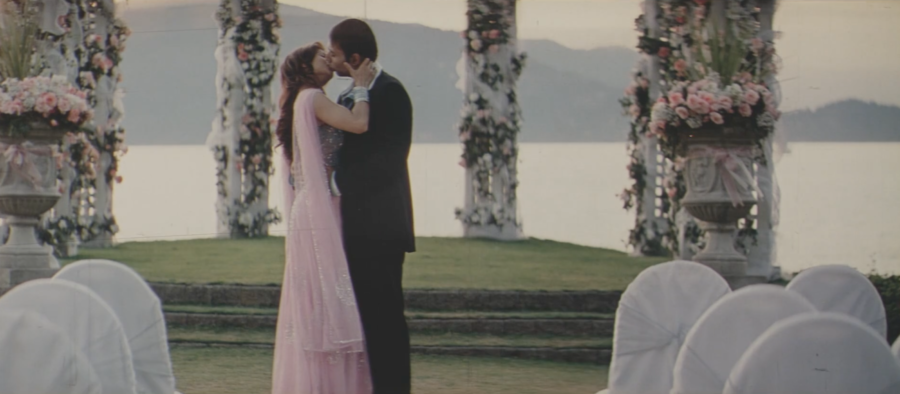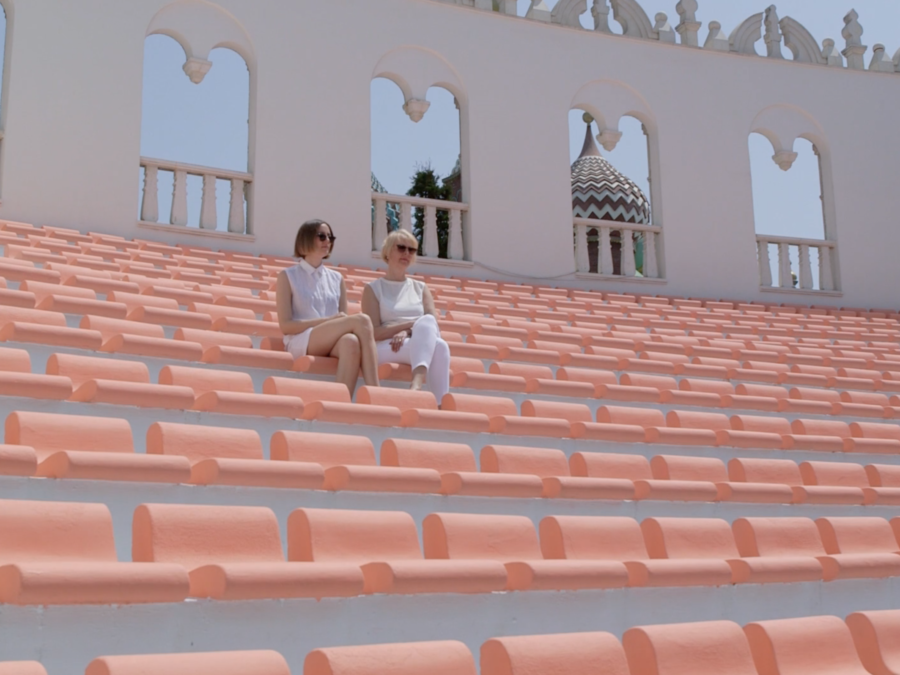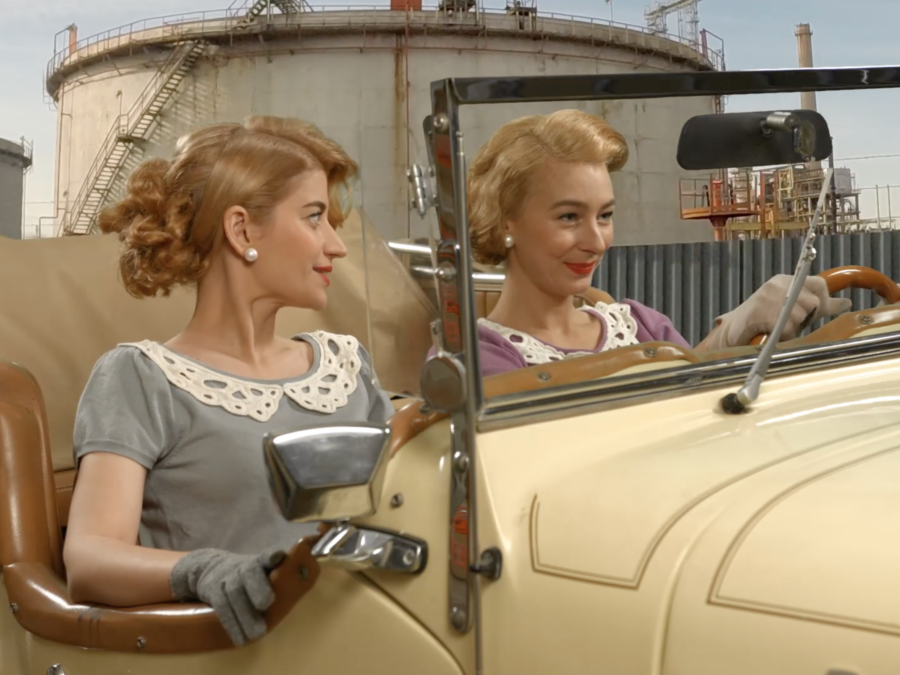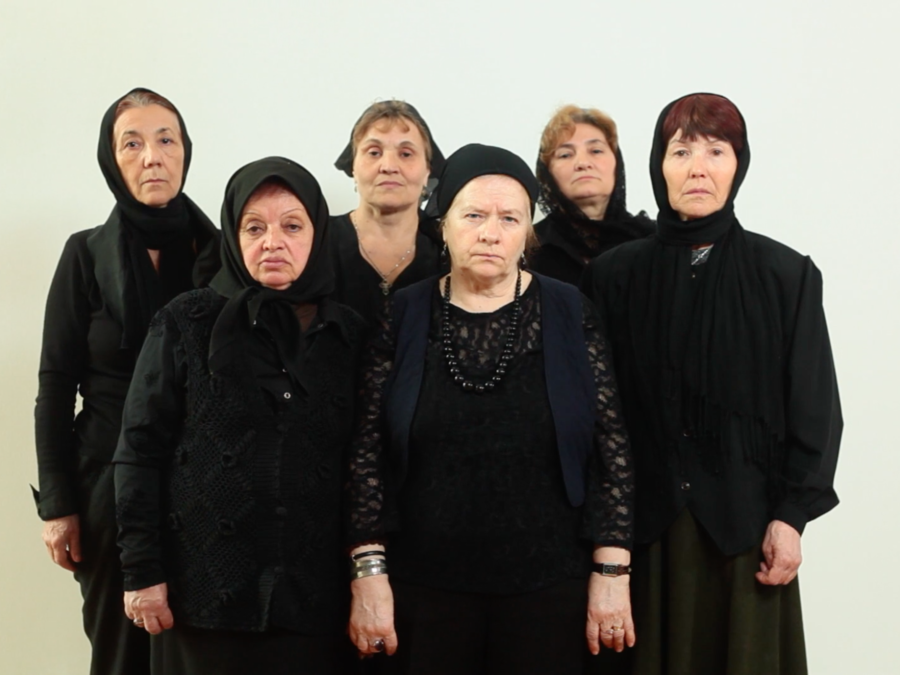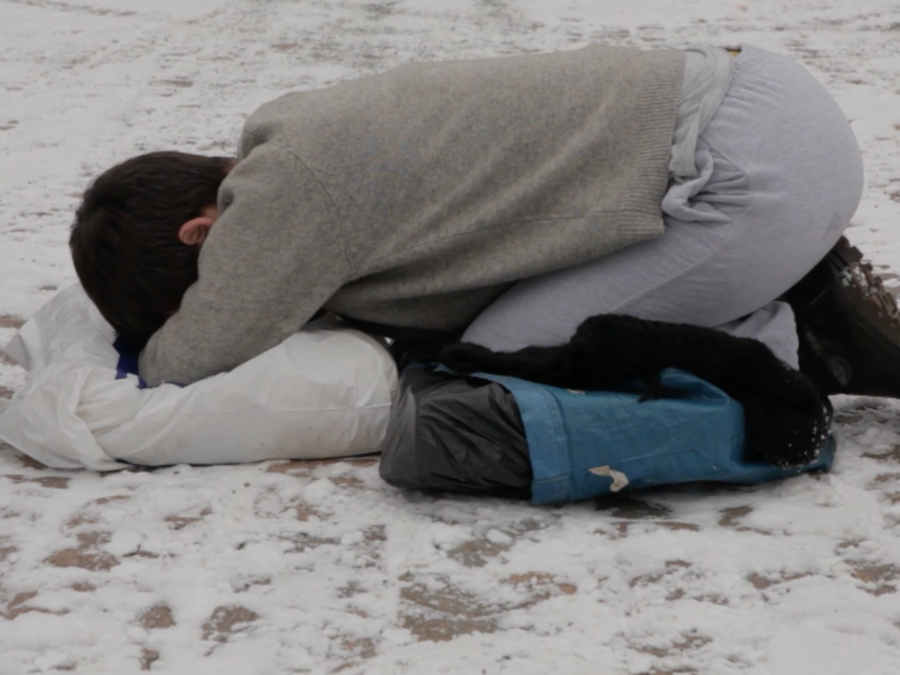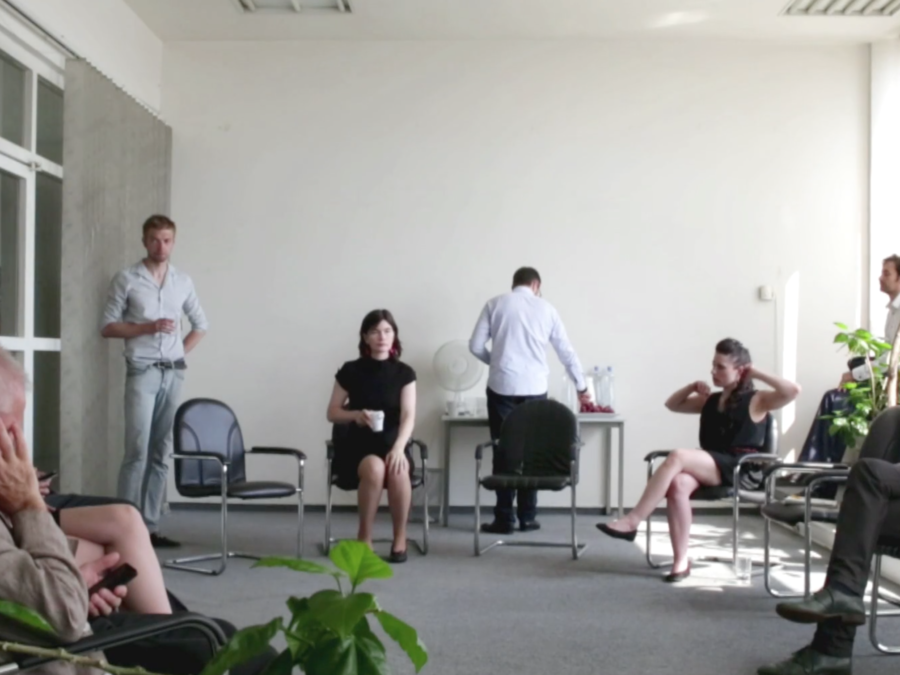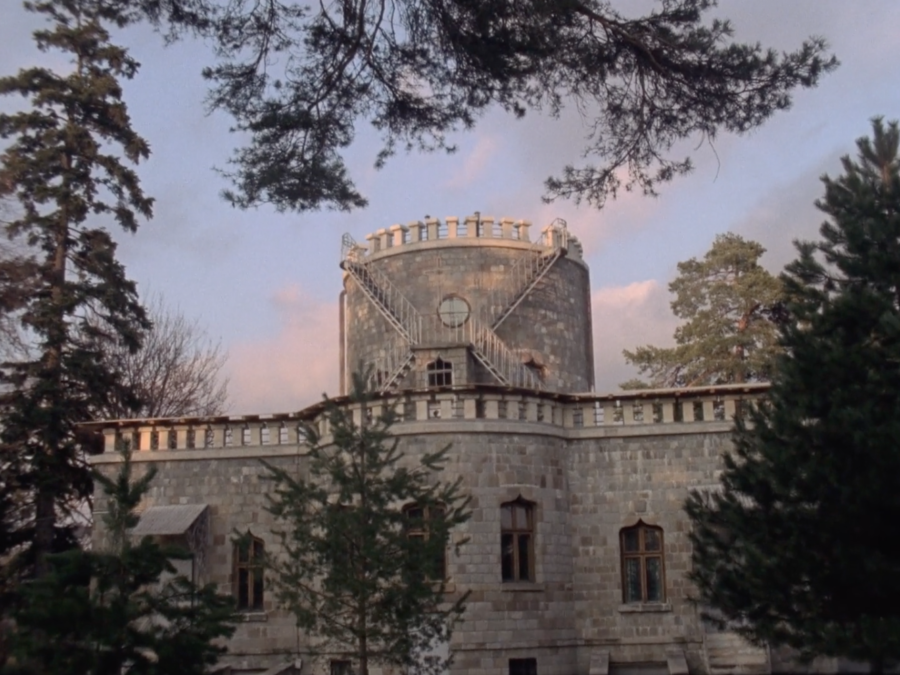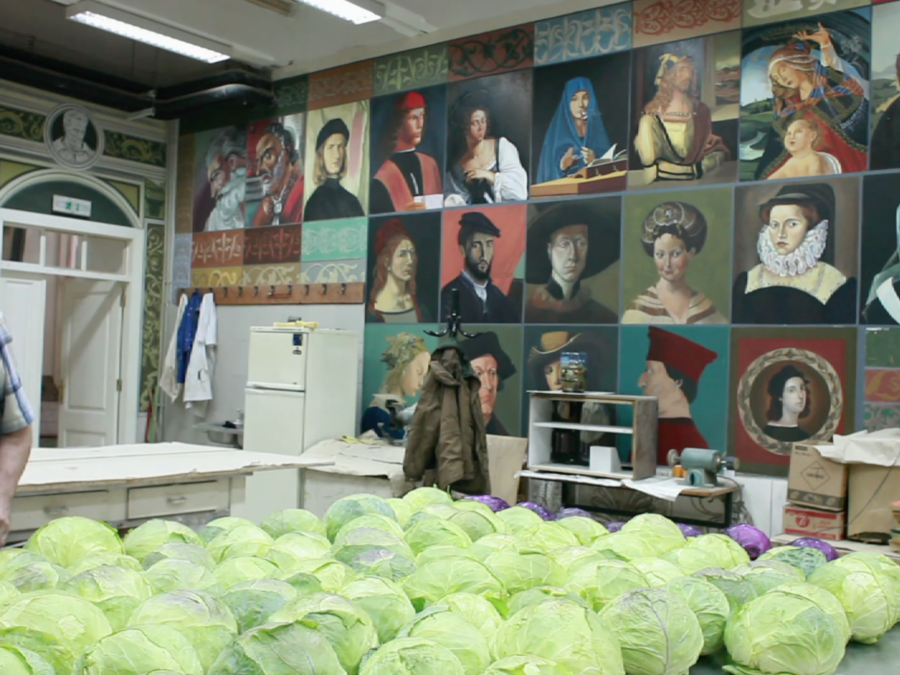In 2012, Goshka Macuga became familiar with the Afghan Film Archive in Kabul. After she learned about their precarious and fragile situation in a war-torn country, she became interested in the visual material of the archive. She asked to purchase off-cuts, strips of film that were thrown away during the process of digitization, to see what its film residues would bring to the surface. Soon she received nineteen separate reels on 35mm film which contained censored, violent and sexually explicit scenes from Afghan and foreign films. She began to understand that she had acquired reels whose content did not meet her expectations. Taking this surprise as a starting point, Macuga developed an interest in the context behind these images which operate in a “totally different affective register” than expected and oftentimes depict men sexually assaulting women. For her project Non-Consensual Act (in progress) (2013), Macuga decided to reedit the material into a narrative that concentrates on the images’ abstract visual language. Simultaneously, the artist gives an oral insight into her research on cultural and societal restrictions in Afghanistan and their influence on the stagnating film production, the representation of women and the apparent commodification of rape. Macuga asks: “What if, in fact, I was being presented with a statement about the intention to cleanse the industry of such violent scenes? That these were censored as a pseudo-heroic act to protect audiences from witnessing rape?” Macuga, unwilling to definitely answer these questions, speaks of the Taliban’s paternalistic attitude towards the protection of women which she considers as closely linked to an actual fear of women. The artist raises awareness that the inherent issues that this material brings to the fore are not confined to the “East” but are also under negotiation in the “West,” in high political circles. Asking about the implication, representation and titling of rape, she comes to understand rape as a transactional tool across the domestic sphere and the global political arena.
Goshka Macuga’s interdisciplinary practice typically applies in-depth historical and archival research for testing the relation between aesthetics and politics. Recent solo exhibitions include Schinkel Pavillon, Berlin (2016), New Museum, New York (2016), Fondazione Prada, Milano (2016) and Museum of Contemporary Art, Chicago (2012). She also participated in the 8th Berlin Biennale (2014), dOCUMENTA (13), Kassel/Kabul (2012), 53rd Venice Biennale (2009) and 5th Berlin Biennale (2008). In 2008, Macuga was nominated for the Turner Prize.
